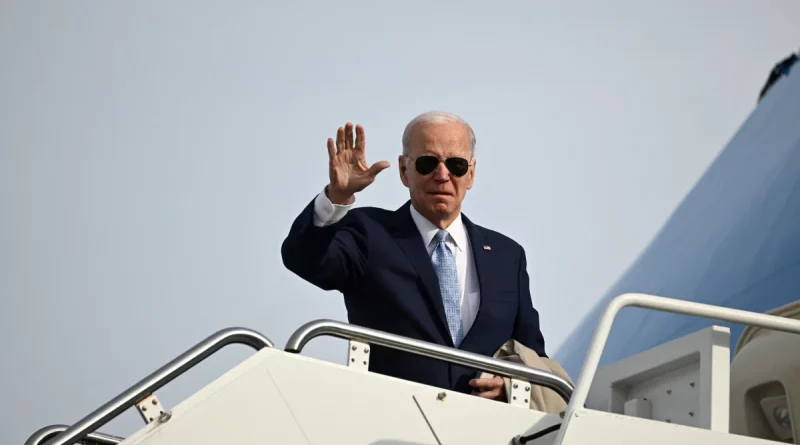Biden to visit Canada for the first time as U.S. president
Biden to visit Canada for the first time as U.S. president
U.S. President Joe Biden will discuss a number of important issues with his Canadian counterpart during his first visit to Ottawa as head of state, the White House said.
These include national security issues, climate change, trade and migration issues, the conflict in Ukraine and the unrest in Haiti.
Biden will travel to Canada’s capital on Thursday, where he will meet with Prime Minister Justin Trudeau and address Parliament on Friday.
During his visit, Biden will discuss “concrete steps to increase defense spending, the global race for clean energy leadership and creating a prosperous and inclusive economy,” said John Kirby, strategic communications coordinator at the National Security Council.
The seriousness of these issues underscores not only the importance of the close relationship between the United States and Canada, two countries with the world’s longest unguarded land border, but also how unbalanced the relationship is, analysts said
“It’s a relationship that often doesn’t get the attention and respect it deserves,” said Earl Anthony Wayne, a Woodrow Wilson Center fellow and former U.S. ambassador to Afghanistan, Argentina and Mexico.
Biden is only now, more than halfway through his presidential term, visiting Ottawa.
Former U.S. Ambassador to Canada Gordon Griffin noted the packed agenda of the short visit.
“Judging by the list of issues that, quote, ‘must’ be addressed, Biden’s visit should last three weeks, not two days,” he said.
The White House said the key issue would be security, including in the skies in North America, where it is provided by the joint Air and Space Defense Command (NORAD), in the Western Hemisphere amid instability in Haiti and across the ocean, in Europe and Asia.
As for calls for a U.N. peacekeeping force to be sent to unstable Haiti, Kirby said: “I think they will talk about the possibilities of our continued support for the people of Haiti and the Haitian national security forces in humanitarian terms. As far as a multinational force or something like that, I wouldn’t want to prejudge that conversation.”
Colin Robertson, a former Canadian diplomat and former head of the Canadian Institute of International Affairs, expects Biden to emphasize contributions to security.
“I’m going to assume that the president is going to push us on the defense and security side,” he said. – We made a commitment under NATO to spend 2 percent of GDP on that. And so far, for Canada, it’s only 1.27 percent. Yes, we’ve made some investments in NATO modernization recently, but we’re expected to do a lot more.
You may be interested: Strikes in California schools
